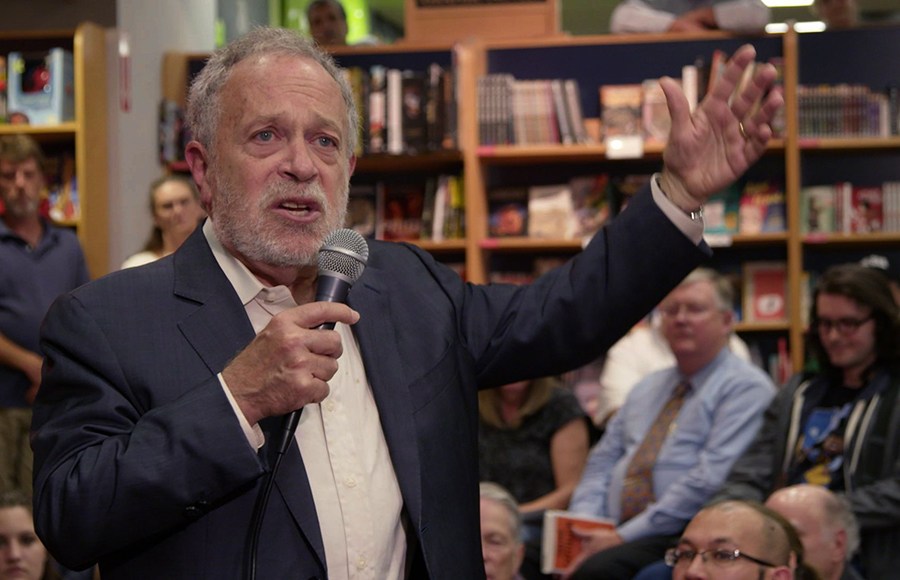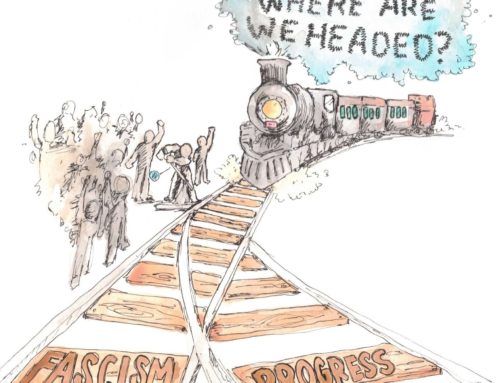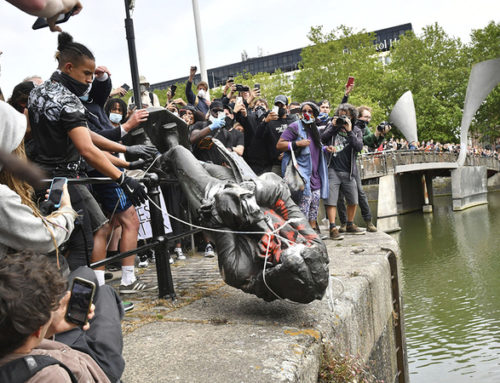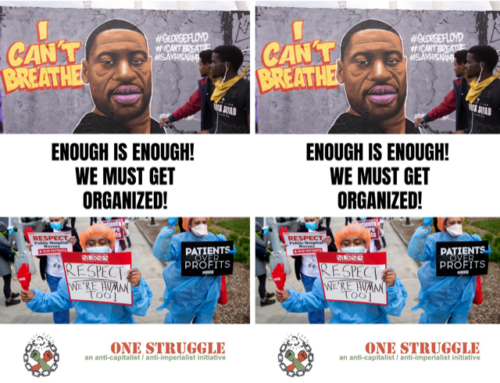“America was once celebrated for and defined by its large and prosperous middle class. Now, this middle class is shrinking, a new oligarchy is rising, and the country faces its greatest wealth disparity in eighty years. Why is the economic system that made America strong suddenly failing us, and how can it be fixed?”
This is an excerpt of “Saving Capitalism”, a book published in 2016 by former Secretary of Labor Robert Reich. The book served as an inspiration for a homonymous documentary, in which Reich himself is followed by the cameramen as he attempts to offer his account of the current crisis of capitalism and of how to respond to it.
In the documentary, Reich provides a series of statistical evidence of the growing wealth inequalities and takes on a conciliatory position – he is shown engaging in conversation with poor farmers and fast-food workers as well as with multiple right-wing politicians and lobbyist. He attempts to convey the idea that, at the end of the day, everyone wants more or less the same thing: a more just and functional society. Reich’s analysis and proposals boil down to the following:
- A focus on the economic situation of the American “middle class”
- An opposition to “crony capitalism”
- The need to bring back “our democracy”
- The need to redesign capitalism “for the many, not for the few.”
Reich’s position is filled with fallacies, and we’re going to address them here in order of appearance.
“We’re All Middle Class”
Firstly, by centering his analysis exclusively on the “middle class”, Reich completely erases and obscures class dynamics. The concept of “middle class” is vague and elusive, and often assumes that class depends solely on income, education level, etc. This approach conceals the relationship of exploitation intrinsic to how classes actually function – that is, based on people’s relationship to the means of production. Certain groups – the bourgeoisie – control those means and profit from the accumulation of capital; other groups – the working class – do not own the means of production, and must sell their labor power while producing surplus value. So no, Mr. Reich: we are not “all middle class”. In neglecting this fundamental contradiction (capital vs labor), Reich denies class struggle, and reproduces a form of ideological domination that sustains capitalist profit-making.
In addition, by limiting his geographical scope to the United States, Reich neglects an essential piece of the puzzle: imperialism. A large amount of wealth and physical goods existing in the US today have been produced elsewhere, with the labor power of people in countries that are trapped under US economic domination. These coercive international relationships are a natural expansion of capitalism, since after the exhaustion of local resources, the capitalist class is led to search for exploited labor, cheap raw materials, and new markets beyond national boundaries.
Crony Capitalism
Secondly, Reich’s opposition to “crony capitalism” is underpinned by a false premise. It is the notion that we are facing problems like political favoritism or unfair advantaging because capitalism is somehow broken or not working properly. The logical consequence of that position, then, is to push for “true capitalism”, where the “playing field” is level. This is a mistake – and more than that, it is a bourgeois ideological attempt to brush off the concentration of capital and political power as an abnormality that can be corrected. In reality, “crony” capitalism is simply capitalism. Unfair advantaging is an inevitable consequence of a system that runs on domination and exploitation, and it is no irregularity: it is designed that way. When we fail to see this, our narrative becomes not very different from that of fascist organizations like Turning Point USA.
Democracy for Who?
Next, Reich bets on “getting our democracy back.” Here, we must ask the question: whose democracy?
We are often told that “democracy is the power of the people by the people” — but few remember to point out that Greece, where democracy was originated, had slaves who were excluded from that project. Similarly, we are told that democracy is obtained and maintained through elections – but we quickly forget that the elections (and therefore democracy itself) used to exclude women and people of color until not too long ago.
This shows us that, far from being the neutral, objective concept it purports to be, democracy is a model that allows a dominant class to organize society around its own interest. Democracy has always been for the slave owners, for the landlords, for the factory heads — and it is, today, for the capitalists. It’s not about getting our democracy back, Mr. Reich: it’s about understanding that it has never been ours.
We Have to Build Our Own Alternative
At last, Reich insists that capitalism can be redesigned “for the many, not for the few.” This assumption ignores one of capitalism’s most fundamental characteristics: the structural need for an impoverished working class to produce and sustain ever-increasing profits. This need exists for at least two reasons. First, because for capitalists to find people willing to sell their labor power, those people must have no other alternative: either they work for a wage or they starve. Second, because it is in the highest interest of capitalists to reduce production costs, lowering wages and increasing productivity by making workers produce more in less time. Without that kind of exploitation, capitalists would not be able to accumulate surplus value.
Despite the name of the movie, Reich seems to have no actual proposal to save capitalism from its crisis. Towards the end, he comments that Americans are pragmatic and never “turn to fascism or communism” – which is a naïve claim, since both are political alternatives in the face of the decomposition of capitalism. In fact, we are witnessing the possibility for the rise of fascism in the United States right now, with the increasing gutting of bourgeois democratic rights and the growth of far-right nationalist groups. When in crisis, capital must commodify everything, and cannot tolerate any progressive veneers.
Finally, it is worth mentioning that Reich did get something right. In his words, “The only way forward to a system that works for the majority of us is to get organized and politically active.”
We agree. But we will not organize to save what is killing us, Mr. Reich. We must organize to dismantle it.
In this moment of fear and political uncertainty, let us find unity and channel our efforts into building a popular mass movement. The way forward is resistance!
STAND UP. FIGHT BACK. ORGANIZE.
Get in touch if this resonates with you.
onestruggle.southflorida@gmail.com
onestruggle.fiu@gmail.com
FB – @OneStruggle
IG – @OneStruggle.FIU
Twitter – @OneStruggleSF






